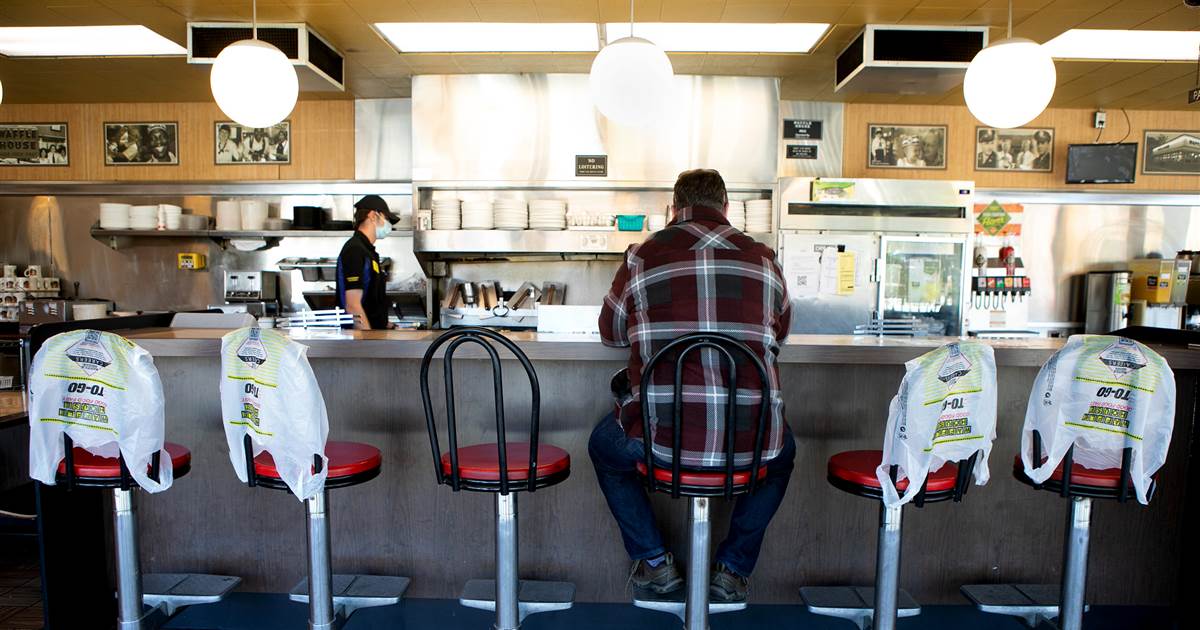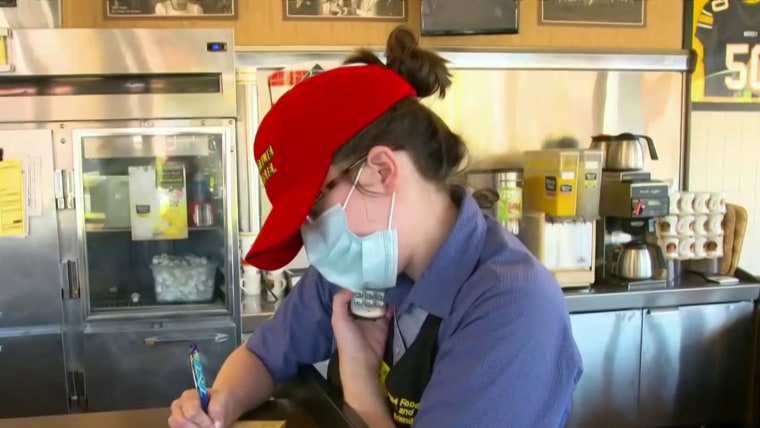As a handful of states begin to ease stay-at-home restrictions, no state that has opted to reopen has come close to the federally recommended 14 consecutive days of declining cases.
Even as the U.S. hit the grim milestone of more than 1 million cases Tuesday — one-third of the world’s total — Georgia, Minnesota and other states are pushing to reopen businesses, even though new infection rates are still rising.
Some states, such as Colorado and Kentucky, have reported fewer new cases in the past week. But no single state has had 14 days of decline.
Full coverage of the coronavirus outbreak
The 14-day guidelines, which President Donald Trump announced April 16, “make sense,” New York Gov. Andrew Cuomo said during a media briefing Tuesday while acknowledging the economic dilemma.
“We want to reopen, but we want to do it without infecting more people or overwhelming the hospital system,” Cuomo said.
Let our news meet your inbox. The news and stories that matters, delivered weekday mornings.
The number of cases states report each day doesn’t necessarily reflect patients who were diagnosed within the past 24 hours. There is often a backlog of test results, and some infections aren’t identified right away.
Still, daily case counts continue to rise in many states. And governors are struggling with how to balance what’s best for the economy with what’s best for public health.
“It’s a delicate conversation,” said Cameron Wolfe, an associate professor of medicine at Duke University School of Medicine. “We are literally trying to find ways of coexisting with COVID that doesn’t lead us back into a secondary surge in cases.”
Download the NBC News app for full coverage of the coronavirus outbreak
The most important way to ensure successful reopening, experts say, is to have a vast quantity of accurate tests to diagnose COVID-19 cases.
“It cannot be overstated how important diagnostic testing is,” said Dr. George Anesi, director of the Medical Critical Care Bioresponse Team at the Hospital of the University of Pennsylvania.
Ideally, that means testing everyone, including people who never show symptoms. Properly identifying asymptomatic spreaders — as well as infected people who are contagious before they start showing symptoms — would cut the risk that people would unknowingly transmit the virus to other, vulnerable people.
If the nation reopens “in a way that is not based on continued testing and understanding how the disease continues to circulate in our population,” Anesi said, “then we could end up with another surge and another shutdown.”
Once physicians are able to identify those who’ve been infected, they need to have a system to find whom those patients may have infected. It’s a tried-and-true method to contain infectious diseases called contact tracing.
That requires staffing at a public health level to contact each patient and ask detailed questions about the people he or she has been in close physical contact with in recent days or weeks.
“It’s a big effort,” Wolfe said. “You need to have a very clear pathway by which you can execute contact tracing. Currently, I don’t think many states, sadly, have really thought that through.”
Meanwhile, it’s increasingly apparent that other potential methods of containing the virus, such as therapeutics or a vaccine, remain unavailable or unproven. And experts advise against relying on antibody tests to prove one’s immunity to the virus. A positive antibody test shows only that a person has been infected; it’s too soon to know whether it means a person can’t be infected a second time.
“People talk about antibody tests that will give them a golden ticket, but that’s not the case. People can talk about vaccines. It’s not here,” Wolfe told NBC News.
“The reality is, we have to find ways of doing business that are a little different,” he said. “There needs to be a real introspective look at the way we reopen, because this is not over. It’s not over for the rest of 2020, to be quite frank.”








